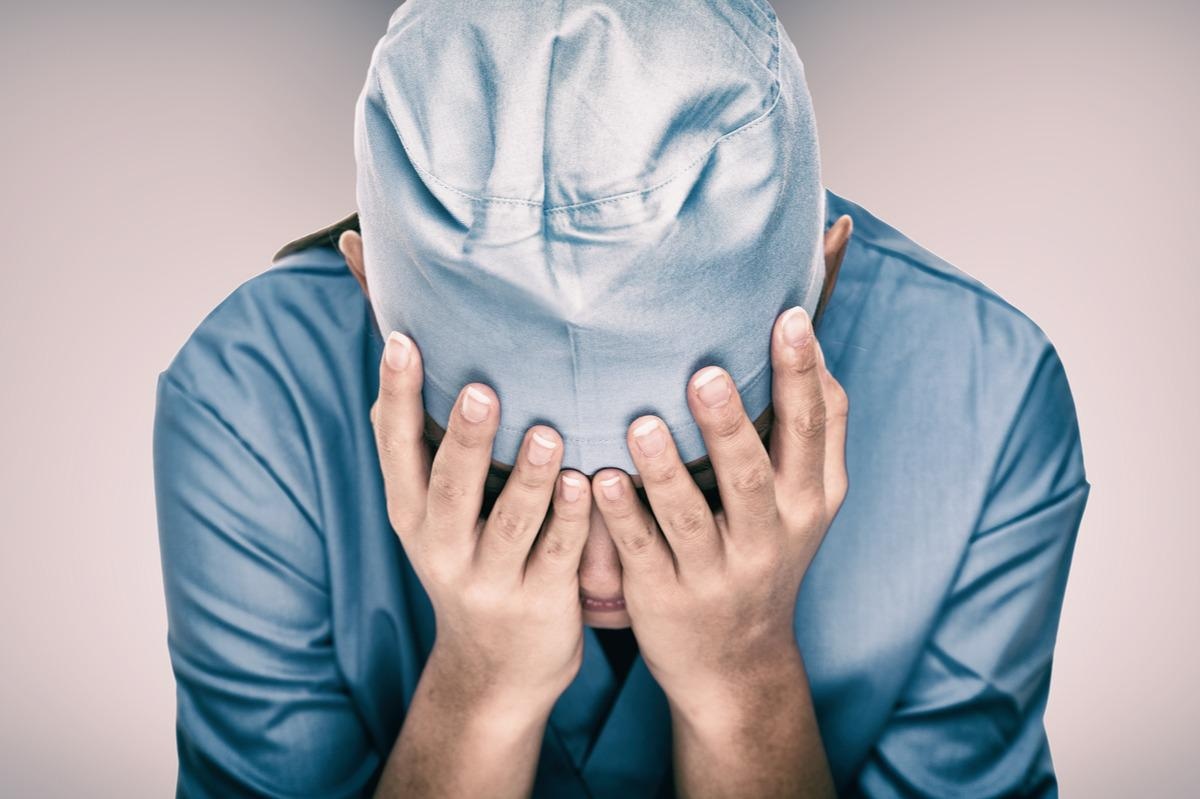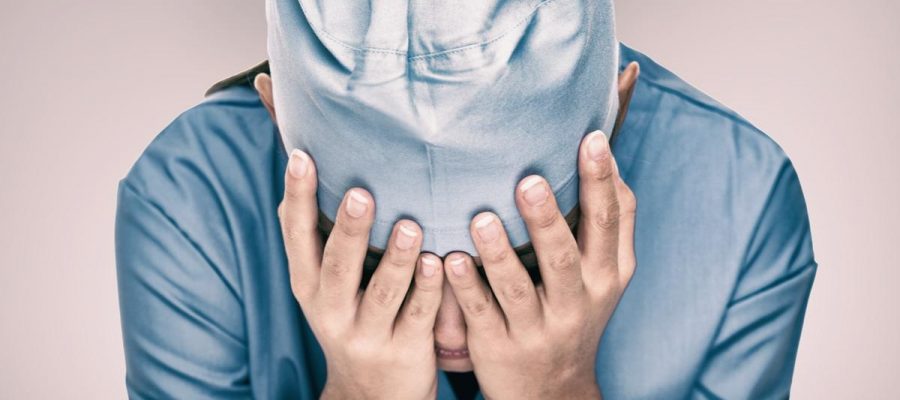Medical students are required to rethink their activities and prioritize themselves to be available for the long lecture hours, daily laboratory sessions and be ably prepared for their school and national exams.
Before joining a medical school, their lives are different and they must adapt to the competitive and increased demands of medical education; Moreover, medical students report higher rates of burnout and mental illness than other students. Some students take up extra activities like volunteering, work, or research experience to enroll for residency.
 Study: Effects of medical school on mental health and sleep habits. Image Credit: Maridav/Shutterstock
Study: Effects of medical school on mental health and sleep habits. Image Credit: Maridav/Shutterstock
Therefore, it is important to identify and understand the risk factors for mental health deterioration in students, which is likely to have implications for medical residents and physicians.
A recent study posted to the medRxiv* preprint server examined the effects of medical schooling on the mental health and sleep habits of students.
The study
In the present study, changes in depression and anxiety in the first two years of students in a medical school were evaluated. The authors evaluated the relationship between sleep habits and other risk factors (chronic disease, year of medical school, class year, exercise habits). The impact of the coronavirus disease 2019 (COVID-19) on medical students was also the focus of the study.
The students enrolled in the classes of 2023 and 2024 were surveyed voluntarily. Sleep was quantitated as average hours of sleep per night, and the sleep quality changes (SQ-3) were assessed with three questions. The Pittsburg Sleep Quality Index (PSQI) was incorporated in the survey from the Summer of 2020 as a supplementary evaluation of sleep quality. Generalized anxiety disorder -7 (GAD-7) and patient health questionnaire – 9 (PHQ-9) were used to assess the levels of anxiety and depression, respectively. In the second year of the study, additional questions were included in the survey related to the COVID-19 pandemic to investigate if the pandemic had any impact on sleep levels, anxiety, and depression in medical students.
Using generalized linear mixed models (GLMMs), the response data of SQ-3, PSQI, GAD-7, PHQ-9 were analyzed statistically. The present analysis was stratified into three cohorts. In the first cohort, participants from both the classes i.e., 2023 and 2024 were analyzed without COVID-19-specific questions. The second cohort analysis was the same as the first but included the COVID-19-specific questionnaire. The final cohort included only the students of class 2023.
Results
A total of 197 students were surveyed with 85 of them from the class of 2023 and the remaining had enrolled for the class of 2024. The use of GLMMs enabled simultaneous evaluation of effects like the class year, differences across time points (Summer 2019 through Spring 2021), average sleep hours, total exercise, COVID-19 period, and chronic disease. The authors observed significant differences across time points in the individual analysis of SQ-3, PHQ-9, PSQI, and GAD-7. Differences across time points, less sleep, and a chronic diagnosis increased the scores of SQ-3, PHQ-9, and PSQI. Timepoint differences and chronic disease significantly increased the GAD-7 score.
In the second cohort, three additional variables of self-reported changes in anxiety, depression, and sleep quality were included. The COVID-19 pandemic had not caused any significant changes in depression, anxiety, and sleep quality, but the pandemic did have significant effects on the self-reported responses on these factors.
The third cohort showed that chronic disease and average sleep hours had a significant effect on SQ-3, PSQI, PHQ-9, and GAD-7 responses. Timepoint differences had significant effects on the SQ-3, GAD-7, and PHQ-9 scores. The study found that other variables had no significant effects.
Conclusions
The authors observed that the COVID-19 pandemic had no significant effect on the mental health of medical students. Also, class year and exercise had no effect on their mental health as per the observations. Medical students’ life is full of stress through the academic year and poor sleeping time, which results in elevated levels of anxiety, depression, and sleep quality.
The observations made in this study revealed that the first two years of medical education are associated with increased levels of anxiety and depression and poor quality of sleep, which are driven by the academic cycle. Chronic disorders and decreased sleep quantity were identified as the risk factors for poor mental health in medical students. To address this, medical schools must implement changes and policies to achieve healthy well-being and improved academic performance of medical students.
*Important notice
medRxiv publishes preliminary scientific reports that are not peer-reviewed and, therefore, should not be regarded as conclusive, guide clinical practice/health-related behavior, or treated as established information.
- Effects of Medical School on Mental Health and Sleep Habits. McKinley, Blake, Bryan Daines, Mitchell Allen, Kayd Pulsipher, Isain Zapata, and Benjamin Wilde. (2022). medRxiv. doi: https://doi.org/10.1101/2022.01.13.22269102 https://www.medrxiv.org/content/10.1101/2022.01.13.22269102v1
Posted in: Medical Science News | Medical Research News | Disease/Infection News
Tags: Anxiety, Anxiety Disorder, Chronic, Chronic Disease, Coronavirus, Coronavirus Disease COVID-19, covid-19, Depression, Education, Exercise, Laboratory, Medical School, Mental Health, Pandemic, Research, Sleep, Stress, students

Written by
Tarun Sai Lomte
Tarun is a writer based in Hyderabad, India. He has a Master’s degree in Biotechnology from the University of Hyderabad and is enthusiastic about scientific research. He enjoys reading research papers and literature reviews and is passionate about writing.
Source: Read Full Article
